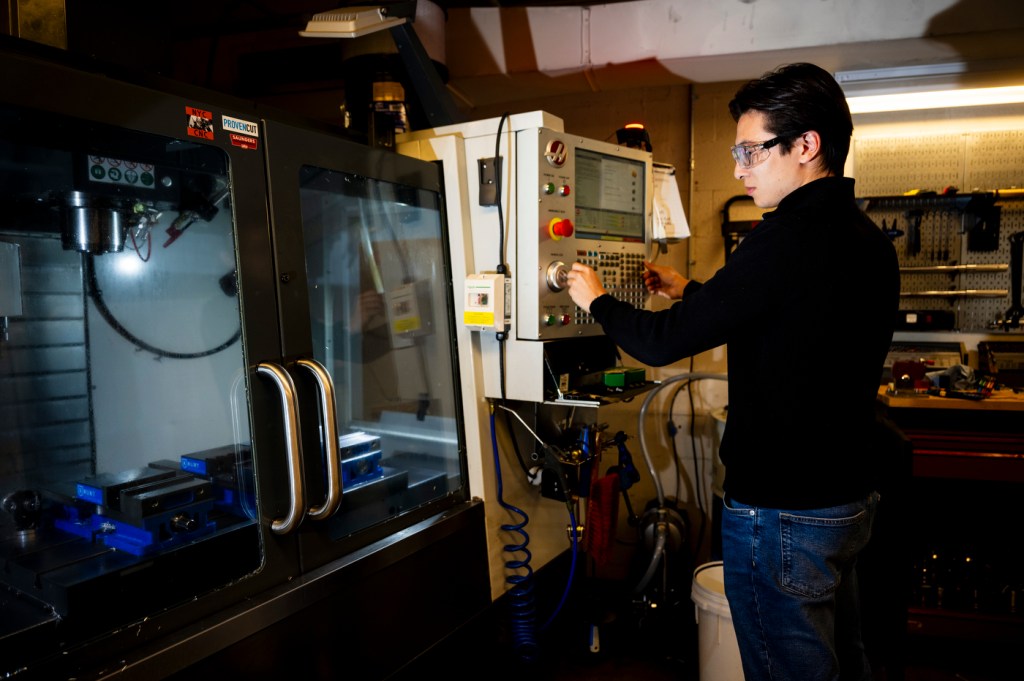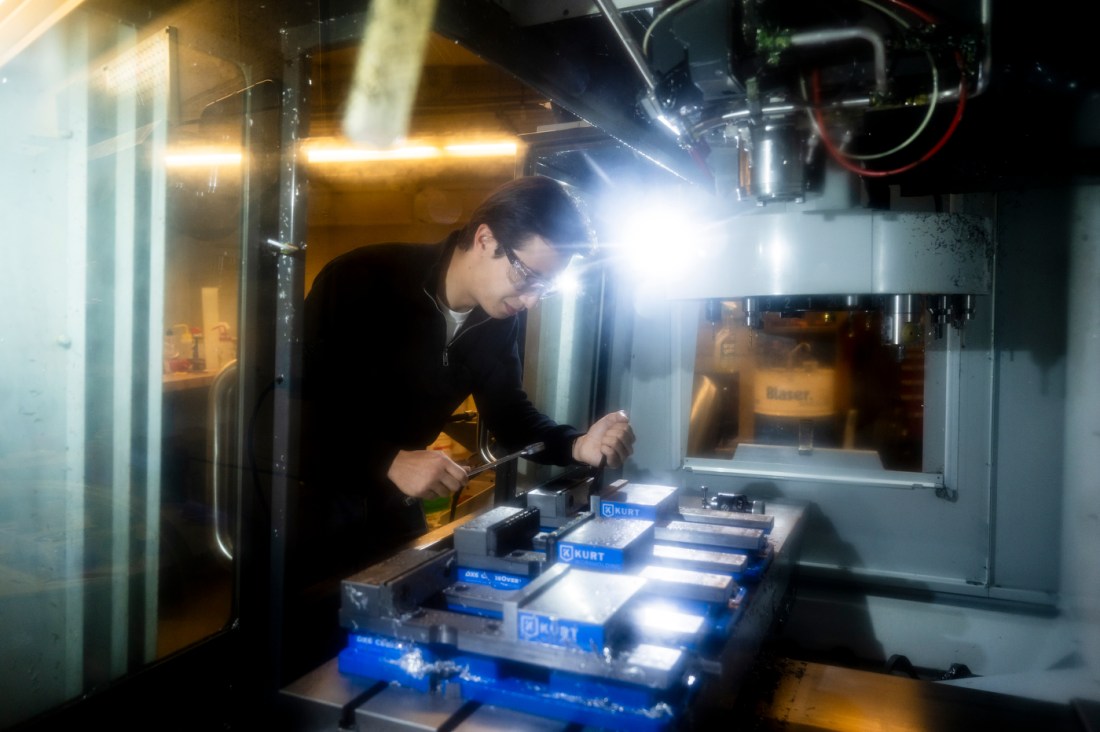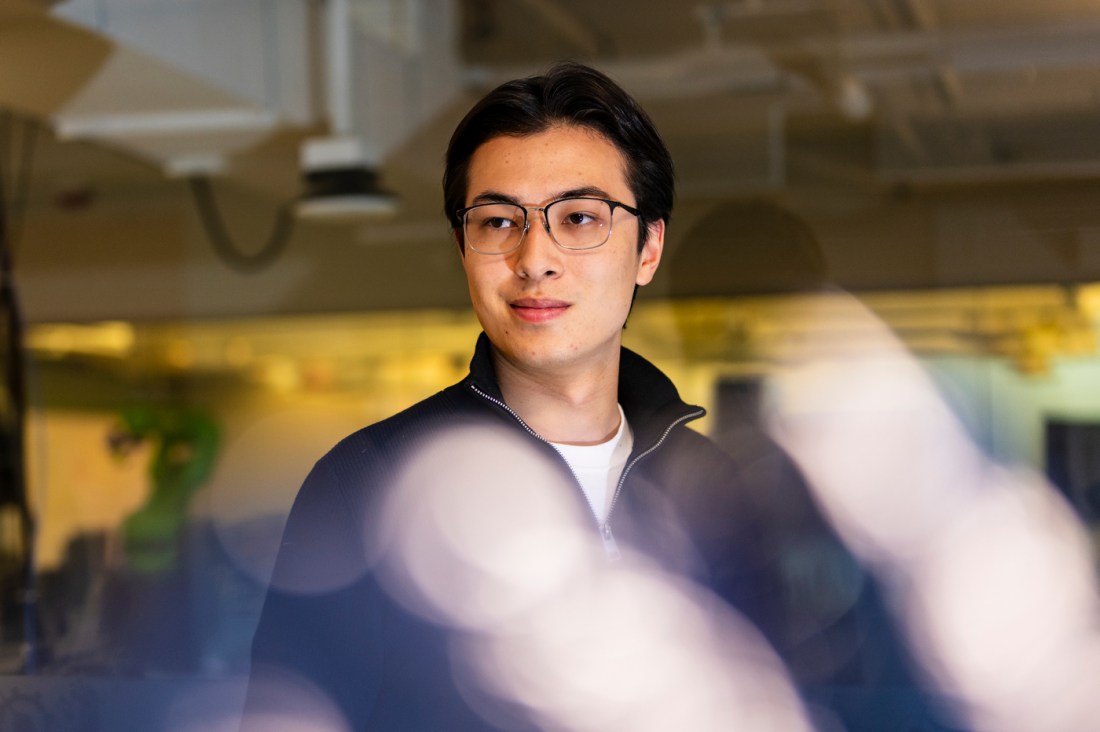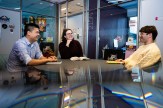This Northeastern co-op helped develop cutting-edge cameras for Apple
Sam Scroggie will graduate from Northeastern University this spring with a bachelor’s degree in mechanical engineering and return to Apple to work full-time.

OAKLAND, Calif. — As a camera process engineer co-op at Apple, half of Sam Scroggie’s job was to develop assembly processes, equipment and materials for cutting-edge cameras used in its products.
The other half was to address manufacuring-related issues.
“One of the great things about working with Apple is the opportunity to work with world-class teams on complex problems,” says Scroggie, who will graduate from Northeastern University this spring with a bachelor’s degree in mechanical engineering.
“I began to develop a sensitivity to this sort of stuff, which just speeds up the process,” he says.
That sensitivity won’t go to waste, now that Scroggie’s co-op at Apple’s Cupertino, California, headquarters is over. Back in Boston this semester to complete his mechanical engineering degree, Scroggie will return full time to Cupertino after graduation to pick up where he left off.
“I will be going back to the same team, in the same capacity, doing the same job,” he says. But this time, he’ll be able to make decisions he didn’t get to make during his co-op.


Scroggie, who grew up in Hong Kong, worked closely with the camera process engineers, supporting the development of assembly processes for advanced camera modules.
Making decisions required consulting a team of engineers. Process engineers focus on process capability. Scroggie represented manufacturing.
“Quite often I would be involved in those discussions, as to where we can make trade-offs between teams,” he says.
Editor’s Picks
Scroggie’s first co-op was with a small Boston-based team of China-based Cornerstone Robotics, which designs surgical robotic systems. During meetings with teams in China, Scroggie was able to use his Mandarin and Cantonese skills.
“That really gave me a leg up,” he says. So did his understanding of Chinese culture, including knowing how to show respect for seniority while introducing new ideas of his own.
He sought the Apple co-op because he wanted to work with semiconductors.
Scroggie worked as a camera process engineer, supporting complex, high-volume manufacturing process development. He also provided design guidelines for manufacturability, and developed new assembly process, equipment and material for camera module, among other things.
He became deeply engaged in the culture of Apple and got to work in the company’s ring-shaped headquarters, affectionately referred to as “the spaceship.” He founded the employee group Cantonese@Apple, which attracted 120 employees to meet and network.
So when he returns to Apple, he’ll have a familiar job and plenty of contacts already in place.
“Because of what I’ve learned, I can take on even bigger projects and take bigger risks,” he says. “I’ll hit the ground running.”











